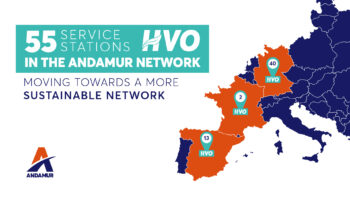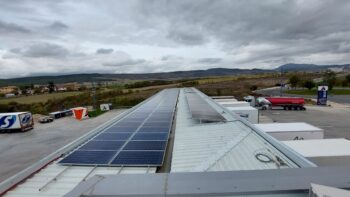

Manage costs related to Andamur fuel payments, AdBlue and secure parking. Credit payment options via bank transfer or online top-ups.
More information
Optimise management and control of your fleet with the most advanced technology. Travel in 12 European countries with a single device.
More information
Recover VAT and other taxes such as Professional Diesel, TICPE, the Macron Law and TIPP on your journeys around Europe. Service 100% tailored to your needs by an expert.
More informationPetrol stations in Europe
Countries in Europe
Customised Service
At Andamur your security and that of your fleet are our top priority. Which is why we devote much of our investment in R&D to developing products and services that make your journeys more secure.
Certified with standard ISO 27001, which endorses our ability to verify and manage risks with maximum security in all our transactions.
Customer service 100% tailored to your needs in all languages. A wide range of services designed solely and exclusively for the wellbeing of all hauliers.
Updated information about Andamur: news, novelties, launches and much more.
![Eng[76]](https://www.andamur.com/wp-content/uploads/2026/02/ENG76-350x197.png)
At Andamur, we continue working to make the daily operations of professional transport in Europe easier. That’s why we are launching our Andamur TOP EUROPE Network, a selection of strategic stations specifically designed for demanding international routes, where safety, reliability, and operational efficiency are key. The Andamur TOP EUROPE Network is the result of analysing […]

At Andamur, we continue to move forward with determination towards a more sustainable transport model. As part of our commitment to the environment and in response to the growing demand from our customers for cleaner energy solutions, from January onwards we are introducing the supply of HVO (Hydrotreated Vegetable Oil) across our network of partner […]

In line with our commitment to sustainability and energy efficiency,at Andamur we have implemented the installation of photovoltaic solar panels at our Andamur Guarromán Service Area in Jaén. This project has been made possible thanks to the funding received through the European NextGenerationEU funds, within the framework of the Recovery, Transformation and Resilience Plan, as […]

© Copyright - Andamur
